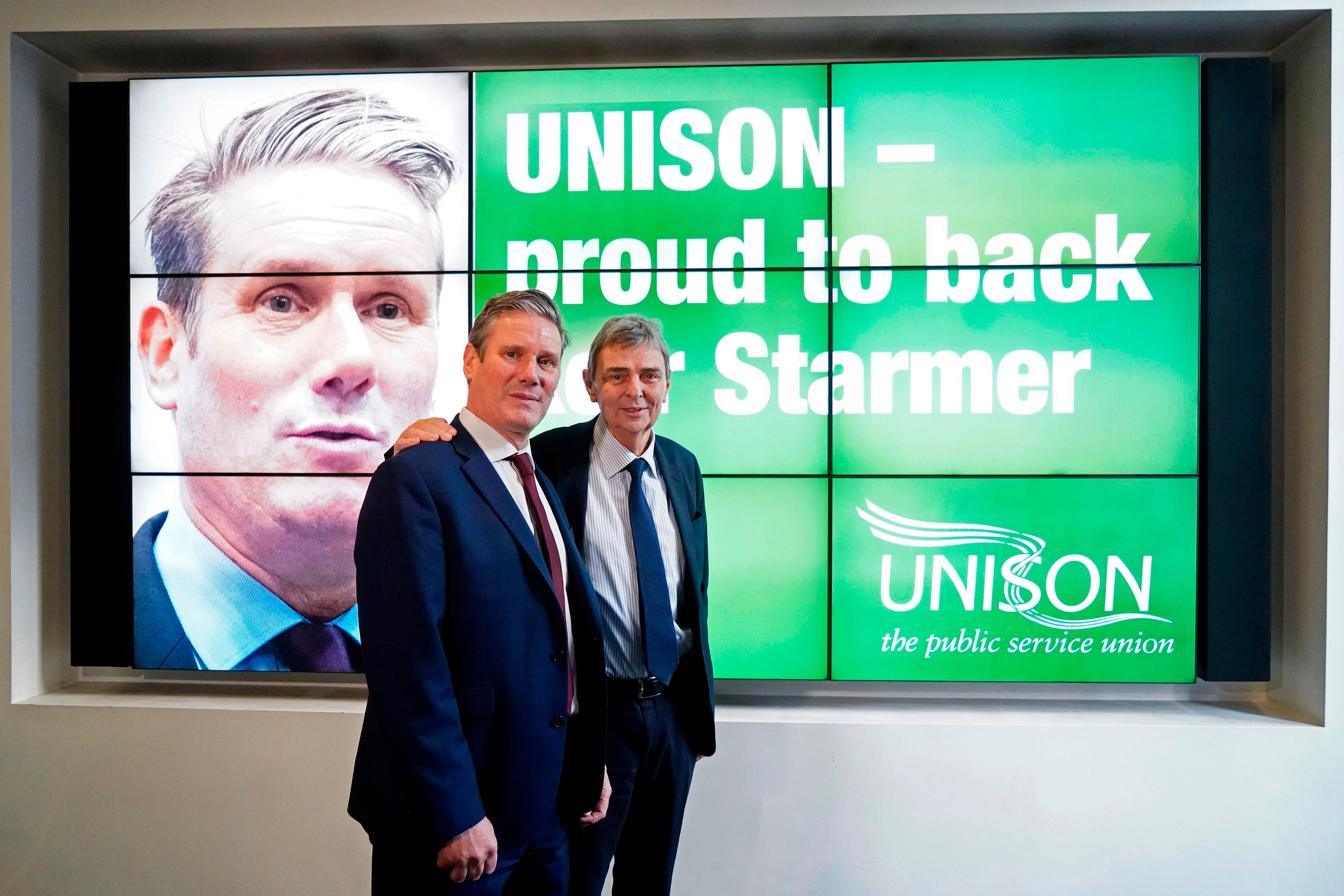Britain’s biggest union announces its new leader today – what will this mean for Keir Starmer?
All change in union politics could have knock-on effects for the Labour leadership, writes John Rentoul


Britain’s biggest union, Unison, will announce the result of the election of a new general secretary today. Christina McAnea is the favourite to succeed Dave Prentis, and to become the first woman to lead the union. But in a low-turnout vote, Roger McKenzie, a Jeremy Corbyn supporter, could upset expectations to win the top job.
How much difference would either candidate make to Keir Starmer? The Labour leader would obviously be happier if McAnea won. She has said of Starmer: “We don’t have a close relationship; I don’t have Labour Party endorsements.” But she would be likely to be more supportive of him than McKenzie, who has been endorsed by Corbyn.
Although the general secretary of the union doesn’t sit on Labour’s National Executive Committee (NEC), they will influence the political direction of the union. If McKenzie wins, the two Unison seats on the NEC may become detached from the majority that is normally loyal to Starmer, and which was reinforced by the election of three “Labour to Win” candidates among local party representatives in November.
On the other hand, either candidate is likely to retain some independence from internal Labour factions, as Prentis did. Under him, the union backed Corbyn for the leadership in 2015 and 2016, and Starmer in 2020.
Unison may be the biggest union in the country, but it is not the most important in the Labour Party, partly because it was formed by mergers with public sector unions that had traditions of staying out of party politics. As a result, Unison has two political funds, one of which helps to fund the Labour Party, while the other is used for single-issue campaigns. And Unison has fewer votes at Labour’s annual conferences than Unite, assuming that there is a physical conference this year after last year’s was replaced by an online event with no voting.
That is why the forthcoming election to choose Len McCluskey’s successor as leader of Unite is being watched so closely. While the Corbynites might make gains in Unison – which won’t be enough to challenge Starmer’s usual majority on the NEC – there is a risk that they will lose control of Unite, which would allow Starmer to tighten his grip on the Labour machine.
McCluskey’s term as general secretary expires next year, but the contest to succeed him is already shaping up. Gerard Coyne, the candidate who ran McCluskey close last time, announced yesterday that he will run again, but the Corbynites cannot agree who should run against him – which matters because in a first-past-the-post election several candidates will split their vote. The union’s United Left faction voted to support Steve Turner, but his rival Howard Beckett complained that there were irregularities in the faction’s ballot and said he will run as well.
Now the BBC reports that a third candidate of the “left” has emerged: Sharon Graham of a new grouping called Workers’ Unite.
Meanwhile, there is still a vacancy for the leadership of a third big union affiliated to the Labour Party, the GMB. It has always been opposed to the Corbynite wing of the party, and is likely to continue to be so – although whoever takes over there will mainly be occupied in clearing up the toxic culture of sexism and bullying that has blighted the union’s senior ranks recently.
Join our commenting forum
Join thought-provoking conversations, follow other Independent readers and see their replies
Comments
Bookmark popover
Removed from bookmarks